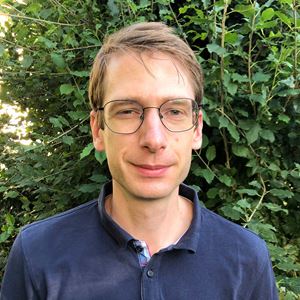News, Background, People, Innovation
Bundled MINT expertise at PostBus
They’ve studied mathematics, physics or informatics, and some have even completed a PhD. Morgane, Eliane, Anina, Raphael, Simon, Lars and Michael tell us why they work for PostBus and how many public transport services benefit from their scientific background.
Rich Content Section

As everything is becoming more and more digital, industries are desperately looking for specialists in the so-called “MINT” subjects, i.e. with a degree in mathematics, informatics, natural sciences or technology. Their skills are also in great demand in public transport – PostBus employs numerous “MINTs” with university or university of applied sciences degrees.
Take these staff members as an example: Morgane Ferrara is a mathematician and planner in the West region, Eliane Gut is a mathematician and price and sales developer, and Anina Leuch has a doctorate in physics and is a data analyst. Her colleagues Raphael Blümli, a physicist with a summa cum laude degree, Simon Schüpbach, who has a doctorate in physics, and Lars Schmutz, a doctorate in mathematics, are also data analysts in the Systems & Services unit. Michael Bärtschi has a doctorate in informatics and works as a data analyst in Operations.
Christian Plüss: “Back to my roots”
MINT expertise is also strongly represented on the Executive Board through Christian Plüss, who has a PhD in Environmental Sciences from ETH, and Andreas Biedermann, who has a PhD in Technology and Innovation Management from ETH. Christian Plüss, Head of PostBus, explains the importance of these skills: “A science degree is an excellent basis for a management role: analytical skills, structuring complex problems and conceptual thinking are part of my daily work. My new role as Executive Management delegate for sustainability takes me back to my roots and requires me to think in global contexts and in terms of interacting systems. An example of this development is the scientific term ‘ecosystem’, which is now also part of the business world’s vocabulary.”
The MINT colleagues mentioned above tell us why they chose to work for PostBus:
Rich Content Section
Eliane Gut (41), Pricing & Sales Developer, at PostBus for four years: “War for talent”
There are many fields where I can use my background as a mathematician. I was in charge of fares at BLS and now at PostBus. I chose public transport because it’s purposeful and systemically important. As part of my professional management, I collate all the revenues from our routes and use them to make forecasts for the ordering process, as is currently the case for the 2024 ordering process. Before that, I worked at Allianz Insurance. Insurance is a classic field for us mathematicians. From a technical point of view, it’s very exciting to calculate loss risks and tariffs. But I didn’t see the benefit for a larger public. The fact that the work at PostBus is meaningful is an important factor in the labour market, where the war for talent is raging. I can safely say that people with our professional background are very much in demand at the moment.
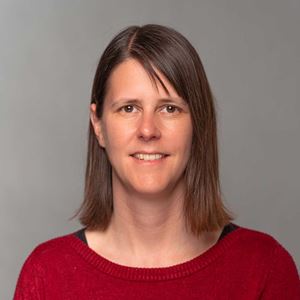
Rich Content Section
Anina Leuch (31), Data Analyst, at PostBus since 2023: “Working with reality”
During my PhD in theoretical physics, I focused on basic research into the behaviour of fluids. Although at first glance this area of research has little to do with PostBus’s activities, there are some parallels – both in the complexity of the problems and in the systematic approach to solving them. In comparison with my scientific work, the analyses that I now carry out at PostBus are much more closely linked to the real world. This practical connection to society is an aspect of my work at PostBus that I really appreciate. It makes me very happy to be able to use my experience in the field of simulations and the analysis of large amounts of data to help improve public transport for many people in Switzerland.
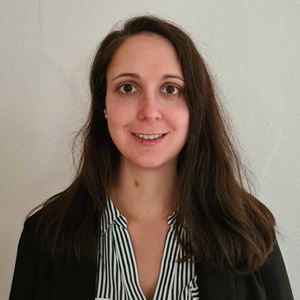
Rich Content Section
Morgane Ferrara (32), Planner in the West region, at PostBus for three years: «Attirer nouveaux clients»
After completing my master's degree in mathematical engineering, I wanted to work in an applied field. I started with the design of public transport schedules in Geneva. Following this experience, I obtained my current job as an offer planner at CarPostal. I really like the practical aspect of transportation, as well as the variety of my work. My training allows me to have an analytical and structured vision, which is very useful for the design and optimization of a network. The Swiss timetable is systemically constructed and the mathematical models are well suited to this purpose. Our job is also to continuously improve the availability and efficiency of our transport, with a view to building customer loyalty and attracting new customers. We do this by using different statistical data. I also appreciate the contact and exchanges with the various sponsors - municipalities, schools, canton - necessary for the proper functioning of the system.

Rich Content Section
Raphael Blümli (30), Data Analyst, at PostBus for four years: “Finding a golden ticket”
When I applied for a job as an operating data analyst at PostBus, I was quite sure that calculating kinetic energy or analysing the air resistance of vehicles wouldn’t be among my main tasks. This assumption of mine quickly proved true. Instead, I was introduced to a whole new world of public transport data. I’m fascinated by this data. For example, I found mistakes in the way we allocated travel categories, which meant we were able to reclaim a significant amount of fuel tax we were owed. This made me realize how valuable logical thinking and analytical skills are in the real world, not just in the lecture theatre. It’s like finding a golden ticket for a trip into the exciting world of transport data!

Rich Content Section
Simon Schüpbach (42), Data Analyst, at PostBus for two years: “Discovering public transport after visiting Greenland”
During my PhD in climate physics, I was able to take part in an international research project in Greenland. We analysed concentrations of countless atmospheric trace substances from ice cores over the past 15,000 years. How do such large data sets come about, what can we learn from them, and what can’t we learn? I’m interested in understanding all this and, ultimately, interpreting and visualizing the data correctly so that it can be used in practice. I can use my scientific skills in this way to gain valuable information. I find it meaningful and exciting that I can help ensure PostBus remains an important part of Switzerland’s public transport system in the future. There’s almost as much to discover as in Greenland.
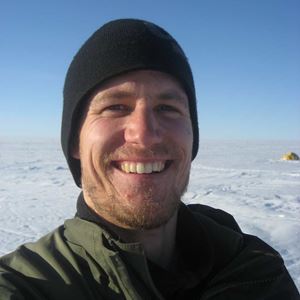
Rich Content Section
Lars Schmutz (34), Data Analyst, at PostBus for four years: “A heartfelt decision for public transport”
When I was studying mathematics, I was interested in analysing structures and objects and finding solutions to complex problems and making them plausible. The beauty of it is that this way of thinking can be applied not only to algebra, but also to many problems in the everyday world of work. Wherever we work with standardized products, systems and objects, there’s a need for analysis, comparison and optimization. There are exciting areas in public transport where I can apply my knowledge. For example, passengers, operating data, dispatch planning, electric charging infrastructure and much more. PostBus and the public transport industry in general were also a ‘heartfelt decision’ for me, as I myself am extremely happy with the excellent public transport we enjoy in Switzerland. And I’m happy to contribute to that.
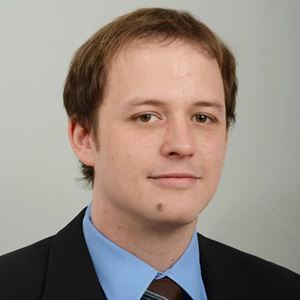
Rich Content Section
Michael Bärtschi (35), Data Analyst, at PostBus for one year: “Also useful for e-mobility”
Studying mathematics immersed me in a fascinating world. Maths uses seemingly simple observations to create abstract and complex structures in just a few steps. Public transport also involves many moving parts. The skills acquired in a mathematics degree are therefore in demand in this industry and can be put to good use. Whether it’s visualizing, interpreting and analysing large data sets or designing enhancements to existing data structures. What’s more, working in the public transport industry guarantees a meaningful job, and with all the challenges that lie ahead in electromobility, it’s sure not to be boring.
